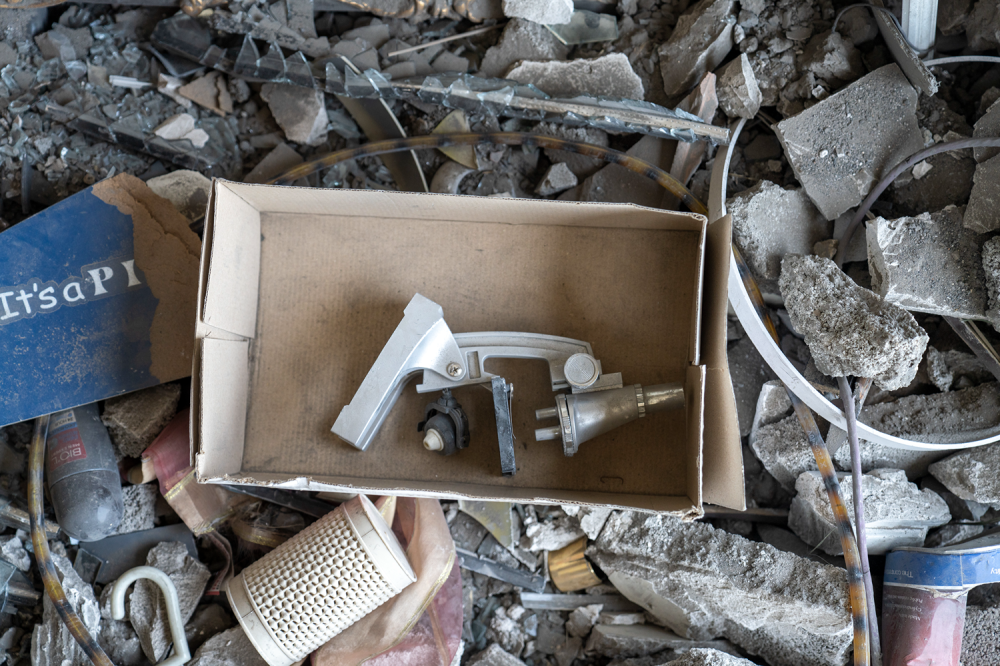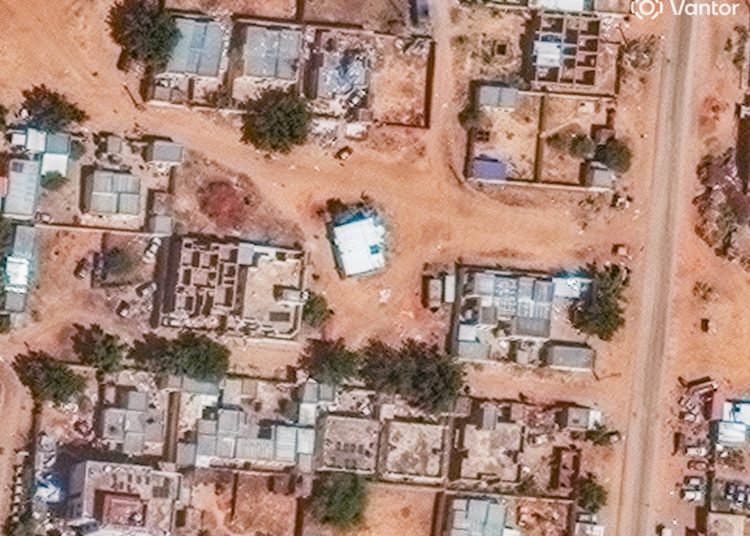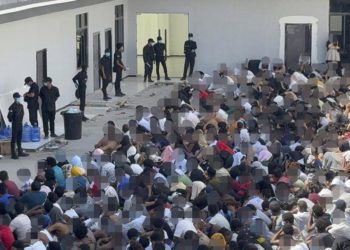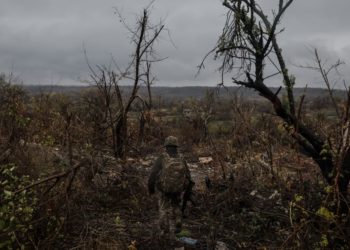Since the late 1960s, the United States and its allies have supported a robust nonproliferation regime to prevent the spread of nuclear weapons. It has been remarkably successful. Eighty years after the Manhattan Project, just nine countries possess nuclear weapons, despite early Cold War predictions that dozens of states would nuclearize in the coming decades. But that regime is collapsing—ironically because of the behavior of a radically changed West.
In recent years, three incidents have dramatically demonstrated the irreplaceable value of nuclear weapons The first is U.S. President Donald Trump’s failure to follow through on his very public “fire and fury” threat against North Korea in 2017. This was followed by Russia’s successful blunting of Western assistance to Ukraine since 2022 via nuclear threats and the recent Israeli and U.S. airstrikes on Iran.
Countries with nukes command enormous deference and near-immunity from Western intervention, while those without are open to Western coercion. The obvious takeaway for illiberal and anti-Western countries everywhere, especially small rogue states, is to sprint for nukes, as North Korea did, or face airstrikes, as Iran has.
A similar lesson applies, albeit less forcefully, to already nuclearized illiberal states such as Russia, China, and Pakistan: Do not negotiate deep nuclear arms control with the West because nuclear threats work. The West will at least partially back down in the face of nuclear threats, even when they are obviously bluffs. (Russian President Vladimir Putin’s routine nuclear threats are now so lacking in credibility that he must literally say that “this is not a bluff.”)
Nonproliferation sanctions and punishments do not outweigh the unique shield from Western coercion that nuclear weapons provide. Both horizontal proliferation (more states nuclearizing) and vertical proliferation (already nuclearized states building more) are likely prospects in the near future.
North Korea is now a model for rogue states seeking security from Western threats. Its strategy of sprinting for a nuclear weapon regardless of consequence or cost has been validated repeatedly. For years, North Korean negotiators have maintained that Iraq’s Saddam Hussein or Libya’s Muammar al-Qaddafi would not have been overthrown had they had nuclear weapons. That is likely correct.
North Korea’s instinct—that nuclear weapons constitute uniquely effective insulation from Western intervention—has been confirmed by Russia’s war in Ukraine. Western leaders and analysts have openly worried that NATO assistance to Ukraine might spark Russian nuclear escalation. Consequently, Western help to Ukraine has likely been slower and more halting than it otherwise would have been. Even though Putin is almost certainly bluffing after three years of unfulfilled nuclear threats, Trump is still so fearful that he upbraided Ukrainian President Volodymyr Zelensky in February for “gambling with World War III.”
Israel’s recent air war on Iran confirms the implicit North Korean argument yet again. As in Iraq and Libya, Iran likely would not have been struck had it already crossed the nuclear threshold. Indeed, Israeli Prime Minister Benjamin Netanyahu explicitly claimed that setting back Iran’s nuclear program was the goal of the strikes.
Given Trump’s refusal to strike North Korea but his willingness to strike Iran, Pyongyang’s heedless sprint for the bomb—coupled to its implacable, 20-year refusal to negotiate it away—looks wise.
By contrast, Iran, which negotiated with the West in good faith, looks foolish. In 2015, Iran agreed to the Joint Comprehensive Plan of Action (JCPOA) with the United States and other world powers. The JCPOA limited Iran’s nuclear industry to nonmilitary purposes in exchange for sanctions relief. Iran abided by the deal, which included inspections—a major concession North Korea has rejected for years.
The JCPOA was probably the best deal that the United States and Israel could have gotten, barring the use of force against Iran with all its inherent risks. And importantly, it signaled to other illiberal but nonnuclear states that they need not do as North Korea did. Washington would negotiate with them in good faith, rather than attack them.
But Trump pulled the United States out of the JCPOA. Sanctions came back. Iran, under pressure, drifted further into Russia and China’s orbit. In time, it violated nonproliferation obligations under the International Atomic Energy Agency (IAEA). Israel then attacked. Iran now likely wishes it had followed North Korea’s path.
Hawks will insist that the JCPOA was not tough enough and that Iran was violating IAEA protocols (which is true but only after Trump withdrew from the deal). Iran has certainly repeatedly declared its desire to annihilate Israel. An Iranian nuclear weapon would be an existential threat to Israel, itself an undeclared nuclear power, so Israel’s strikes may be justified by current circumstances.
But Iran was open to negotiation—specifically, to nuclear restraint in exchange for Western assurances—a decade ago. Iran did seem dissuadable from full nuclearization. Most experts concur that Iran was in compliance with the JCPOA and was not actively developing a nuclear weapon.
By rejecting a negotiated outcome and insisting on the complete abolition of any Iranian nuclear program—even civilian and by force if necessary—the United States and its partners are powerfully signaling to other illiberal regimes that if they do not yet have nuclear weapons, they should dash for them, and if they do already have them, they should resist arms control. Iran itself will almost certainly recommit to nuclearization once the dust of this conflict settles.
The most obvious candidate for future nuclearization is Iran itself. Early intelligence appeared to show that the U.S.-Israeli air campaign only set back the Iranian program by a few months. Trumpian bad faith in past negotiations will almost certainly empower Iranian hard-liners to push for full nuclearization in the future. This could conceivably pull the United States and Israel into a “mowing the grass” relationship with Iran, whereby they must strike it every few years to pull it back from the nuclearization threshold.
But luckily, beyond Iran, there is no immediate rogue-state candidate that could plausibly follow the North Korean path. Myanmar and Venezuela seem unlikely to take the risk; both face deeply chaotic domestic situations that hamstring their ability to pursue a complex operation such as nuclearization. And several previous Middle Eastern nuclear aspirants—Iraq, Libya, and Syria—experienced regime change and are unlikely to try now.
The bad news, however, is that all sorts of rickety states uncomfortable with the Western order could reconsider nuclear weapons if their regimes decayed or radicalized. Besides Iraq, Libya, and Syria—all of which are tenuously governed at the moment—Egypt, Saudi Arabia, or even Turkey might be candidates should their politics backslide. Similarly, as the Sino-U.S. cold war worsens, China may protect clients that nuclearize, as it has with North Korea, as part of that competition. China’s inroads in Africa and Southeast Asia raise this possibility.
The other bad news is that illiberal proliferators with nuclear weapons already—Pakistan and North Korea—will likely reject any real attempt at denuclearization and arms control now. To be sure, this was unlikely anyway, but aggressively prosecuting nonnuclear Iran, while giving nuclear North Korea a pass, tells them both to build more and reject any deals with limits or inspectors.
Finally, as Iran, North Korea, and Pakistan double down, they will also push nearby democracies to either nuke up if they are nonnuclear (South Korea) or build up if they are nuclear already (India).
The problem is limited for now. But by abjuring nonproliferation for counterproliferation, the United States has put itself in a semipermanent nuclear policing relationship with much of the global south. Should any of a long list of midsized non-Western economies in the world take a decidedly illiberal governance turn, perhaps in coordination with China in a new cold war, the West could face a new nuclear sprinter because the new regime would not trust the West to negotiate security guarantees. Consider, for example, if the Islamist radicals who have tried to overthrow the Saudi monarchy for decades finally succeeded and sought a “Sunni bomb.”
As nuclear experts Vipin Narang and Pranay Vaddi argued recently, a new wave of nuclear proliferation seems likely. Ironically, it is motivated by Western action. Slow assistance to Ukraine because of Putin’s empty nuclear threats and Trump’s refusal to act on his widely broadcast threat against North Korea illustrate the enormous deterrent power of nuclear weapons, especially for small, vulnerable rogue states. Conversely, Israel’s airstrikes—like Hussein’s and Qaddafi’s violent deaths—show the great risks of not nuclearizing to countries in contest with the West. We should expect illiberal and anti-Western regimes everywhere to draw the obvious lesson.
The post Strikes on Iran Validate North Korea’s Nuclear Sprint appeared first on Foreign Policy.




